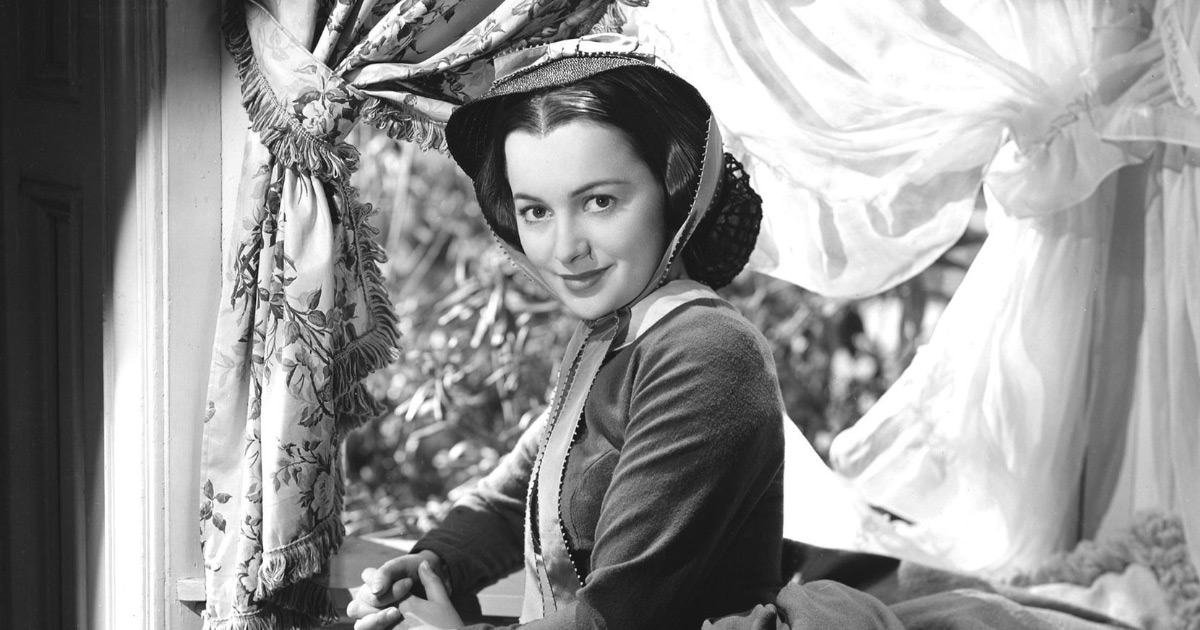Olivia de Havilland, who passed away in Paris at 104 this week, is best known for her role as the genteel Melanie Hamilton in the 1939 Gone with the Wind. In reality, Olivia de Havilland was anything but a pushover, on and off the screen.
Before Gone with the Wind, she cavorted with Errol Flynn in The Charge of the Light Brigade and The Adventures of Robin Hood. At the time, studio bosses locked down stars in seven-year contracts, and Olivia de Havilland was the first to push back in force.
When she demanded more challenging roles, Warner Brothers suspended her for six months, then claimed that the suspension automatically extended her contract. In 1943, de Havilland risked her career by filing a lawsuit, and her victory shook the studio system to its foundations.
Olivia de Havilland was a liberal Democrat, and in 1944 she joined Humphrey Bogart, Judy Garland, and other stars in a radio broadcast for Franklin Delano Roosevelt. After World War II, de Havilland networked with other stars in the Hollywood Independent Citizens Committee for the Arts, Sciences and Professions, but this group had a problem.
Like many Hollywood guilds and unions of the time, HICCASP was controlled by the Communist Party, a force in the studios since the 1930s. De Havilland was given a speech written by Dalton Trumbo, a dutiful Communist screenwriter who joined the Party during the Nazi-Soviet Pact.
Olivia de Havilland tossed Trumbo’s pro-Soviet speech and had screenwriter Ernest Pascal write another. That surprised fellow HICCASP member Ronald Reagan, who thought de Havilland was one of the communists. She thought the same about him, but they duly teamed up on a letter rejecting communism and championing American free enterprise.
Communist Party straw boss John Howard Lawson promptly exploded and smeared the dissenters in typical style. Reagan and his allies duly resigned from HICCASP, one of many Communist Party front groups. Despite her off-screen victories, Olivia de Havilland is still best known for Gone with the Wind.
Her African-American co-star Hattie McDaniel won the best supporting actress award for 1939. De Havilland went on to bag best actress Oscars for the 1946 To Each His Own and The Heiress in 1949. She also turned in memorable performances in The Snake Pit (1948) and The Light in the Piazza in 1962.
Olivia de Havilland’s victory over the studio bosses would make a great movie, but fans should not look for it any time soon. On the other hand, an industry that fancies itself “progressive” did not hesitate to whitewash a loathsome screen Stalinist in the 2015 Trumbo, with Bryan Cranston. Even so, the tough anti-communist de Havilland is likely to prevail in popular memory.
Born in Tokyo, Japan, way back in 1916, Olivia de Havilland outlived the major stars of her time, including her sister, actress Joan Fontaine, who died at 96 in 2013. Olivia de Havilland outlived Ronald Reagan, who passed away at 93 in 2004, and she outlived the great Kirk Douglas, who died at 103 in February.
Whatever one thinks of Olivia de Havilland’s screen career, and the movies in which she appeared, that’s a triumph of sheer staying power.








